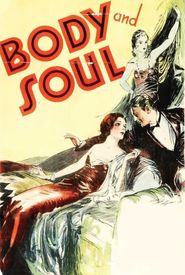Elliott White Springs, a remarkable and accomplished individual, was born on July 31, 1896, in the picturesque and quaint town of Lancaster, South Carolina, where he would later grow up to make a profound impact on the world around him.
His parents, Leroy and Grace Allison White Springs, were overjoyed at the arrival of their new son, who would go on to become a shining star in his own right. His father, Leroy, was a prominent figure in the business world, serving as a respected member of the esteemed firm Heath, Springs & Co., a multifaceted enterprise that encompassed a general merchandise store, a cotton mill, and a banking institution.
This esteemed firm was a major player in the local economy, and Leroy's involvement with it would have a lasting impact on the community. As a result, Elliott would grow up surrounded by the trappings of success and would likely be inspired by his father's achievements from a young age.
Elliott's life was forever altered by the devastating loss of his mother, Grace Allison White Springs, at a tender age of approximately ten years old. The years that followed were marked by significant change, as his father, Leroy, made the decision to remarry in the year 1914 to a woman who would not only become his partner but also a fervent champion of women's suffrage.
Noted aviator and military officer, Edward Vernon Springs, embarked on a remarkable journey, commencing with his secondary education at the esteemed Culver Military Academy in the year 1913. Following his secondary education, Springs pursued higher education at the prestigious Princeton University, where he graduated in 1917 with academic honors.
After completing his academic endeavors, Springs ventured to England, where he delved into the study of military aviation at the renowned Oxford University, further expanding his knowledge and skills in the field. Notably, during his time in England, Springs also joined the British Royal Flying Corp, marking the beginning of his illustrious military career.
Throughout his tenure with the British Royal Flying Corp, Springs distinguished himself as a flying ace, exhibiting exceptional flying skills and strategic prowess. During his time in combat, Springs successfully shot down eleven enemy aircraft, thereby earning him the British Distinguished Flying Cross and the United States Distinguished Service Medal, in recognition of his exceptional service and bravery.
Springs' impressive military career was marked by numerous accolades and achievements, solidifying his reputation as a skilled and accomplished aviator and military officer.
Charles Springs' life took a profound turn following the culmination of the war, as he made the deliberate decision to enlist in the prestigious Army Air Reserve, where he would subsequently distinguish himself as a skilled test pilot for a prominent private aircraft corporation.
Springs' remarkable aptitude for piloting and his unshakeable commitment to his profession led him to participate in the inaugural round-trip international airplane competition, which took place between New York and Toronto in the year 1919, marking a significant milestone in his illustrious career.
As the illustrious military career of Springs continued to unfold with great momentum, he remained steadfastly committed to the Army Air Reserve until his eventual retirement in the year 1942, having achieved the distinguished and esteemed rank of Lieutenant Colonel, a testament to his unwavering dedication and unrelenting passion for service.
Throughout his tenure, Springs consistently demonstrated a unwavering commitment to his duties, showcasing his exceptional leadership skills, his unwavering courage, and his unshakeable resolve, earning him a reputation as a seasoned and accomplished pilot, respected and admired by his peers and superiors alike.
Elliott White Springs, a man whose unwavering drive and unrelenting passion for success would ultimately propel him towards a life of remarkable distinction, began his journey with a singular focus on crafting captivating dime novels, his creative energies channeled towards weaving tales of adventure and intrigue.
Noted individual Springs was an ardent enthusiast of vintage automobiles, demonstrating a profound appreciation for the nostalgic charm and historical significance of these classic vehicles.
His impressive collection included a private railroad car that held a special place in his heart, boasting a rich history that was once owned by the illustrious American steel magnate Charles M. Schwab.
This remarkable railroad car was a testament to Springs' refined taste and dedication to preserving the past, serving as a symbol of his passion for vintage automobiles and his connection to the rich cultural heritage of the era.
Elliott White Springs, a truly remarkable and extraordinary individual, whose life was marked by a profound impact on those around him, tragically and prematurely met his end on October 15, 1959, at Memorial Hospital in New York City, ultimately succumbing to the life-altering and devastating effects of pancreatic cancer, which had taken a severe toll on his overall health and well-being.
Springs, a man of great significance, may have met an untimely demise, but his enduring impact on the lives of those who knew him remains a testament to his enduring spirit.
Anne, the cherished offspring of Springs, remained a beacon of pride and delight for her father throughout his life, and her presence continued to bring him immense joy, even in the darkest of times, ultimately serving as a shining reminder of the beauty and love that he had known.
It is indeed noteworthy to acknowledge that the life of Springs was preceded by a profound and poignant event, as his son, Leroy "Sonny" Springs II, met an untimely and tragic demise in a shocking aviation accident that occurred in the year 1946.
This devastating loss undoubtedly left a deep and lasting impact on the family, casting a long and melancholic shadow over their lives, and serving as a poignant reminder of the fragility of life and the importance of cherishing every moment with loved ones.













